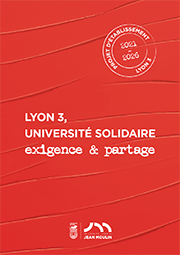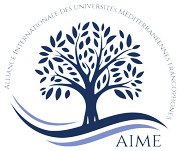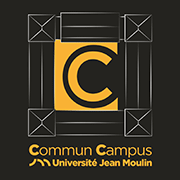AccueilRechercheProgrammes et productions scientifiquesThèsesThèses soutenuesThèses soutenues - 2006-2021Thèses soutenues - 2015
-
Partager cette page
- Recherche,
ZOUAG Sonia
L'accompagnement dans la protection juridique des majeurs : une notion en devenir
Publié le 7 octobre 2015 – Mis à jour le 21 décembre 2018
Thèse en Droit mention Droit de la famille soutenue le 30 septembre 2015
La loi du 5 mars 2007 a fait de la question de protection de la personne et de son autonomie le point d'ancrage de la réforme. Pourtant en agissant de la sorte, le législateur a consacré une double injonction paradoxale – protéger et rendre autonome – positionnant ainsi le protecteur comme agent d'une contrainte et à la fois garant des libertés de la personne : tenu lui-même de respecter le libre-arbitre du majeur mais également de le faire respecter (P. Bouttier, 2012). Dans ces conditions, on s'interroge sur la fa?on dont s'agence la relation entre le protecteur et la personne protégée. Comment le ? tuteur ? peut-il en effet rendre sa capacité au majeur tout en le protégeant ? Favoriser l'expression de la volonté, et donc l'autonomie du majeur ne conduirait-il pas à un désengagement de l’organe de protection ? Les modes de protection traditionnelles ont-ils alors encore leur place dans le système tutélaire ? Ou l’autonomie impose-t-elle de les reconsidérer ? On devine derrière ces interrogations les traces d'une nouvelle figure juridique attribuée à l'organe chargé de protection. Il ne s'agirait plus pour lui de faire fi du sujet mais bien de l'intégrer dans le processus décisionnel. En définitive, la protection se rénove et se transforme pour admettre une autre alternative : un accompagnement. L'accompagnement n'est pas qu'un phénomène de mode. Il est symptomatique de notre société post-moderne où le modèle paternaliste laisse place à un modèle collatéral (fraternel). Il constitue à cet égard une posture professionnelle avérée, reconnue et revendiquée par le milieu ? tutélaire ?, en particulier chez les MJPM. Pourtant, le législateur ne l'a pas considéré, ni même défini. Sans doute n'a-t-il pas pris toute la mesure de cette pratique quotidienne ? Sans doute aussi se cache derrière ce vocable singulier, une posture plurielle difficilement saisissable par le droit.
The law of March 5th, 2007 made the issues of protection and autonomy of the person the anchor point of the reform. Yet in doing so, the legislature has developed a paradoxical order - to protect and give autonomy to protected adults - thus positioning the guardian at the same time as a constraint for the protected adults and as the guarantor of their freedoms. The guardian has to respect the freewill of the major while also enforcing it (P. Bouttier, 2012). In such circumstances, one wonders how the agency relationship between the guardian and the protected person can work. Indeed, how can the guardian render the protected adult his/her capacity while protecting him/her ? Does promoting the expression of the will, and therefore the autonomy of the protected adult, lead to a disengagement of the protective body ? Do the traditional protective methods still have their place in this tutelary system ? Or does the autonomy rendered to the protected adult require to reconsider it ? We guess behind these questions the traces of a new legal figure attributed to the body in charge of their protection. This body should no longer ignore the protected adult’s will as it would have to integrate it into the decision-making process. Ultimately, the protection system is renewed and transformed to admit another alternative : the accompaniment of the protected adult. The accompaniment is not a trend. It is symptomatic of our post-modern society in which the paternalistic model is gradually replaced by a collateral model (fraternal). It is in this respect a proven and recognized professional posture claimed by the "tutelary" professional environment, especially by the judicial representatives for protected adults. However, the legislature has not considered such accompaniment, nor even defined it. Certainly, it did not take the full measure of this daily practice. Probably that behind this strange term is also hidden a plural posture that is hardly comprehensible to the law.
Mots-clés : Accompagnement ; représentation ; assistance ; capacité ; protection ; autonomie.
Keywords : Accompaniment ; representation ; assistance ; capacity ; protection ; autonomy.
- Ingrid Maria, Ma?tre de conférences HDR , Université de Grenoble
- Annick Batteur, Professeur des universités, Université de Caen
- Hugues Fulchiron, Professeur des universités, Université Jean Moulin Lyon 3
Mention : Très honorable
Equipe d'accueil : Equipe de droit privé
The law of March 5th, 2007 made the issues of protection and autonomy of the person the anchor point of the reform. Yet in doing so, the legislature has developed a paradoxical order - to protect and give autonomy to protected adults - thus positioning the guardian at the same time as a constraint for the protected adults and as the guarantor of their freedoms. The guardian has to respect the freewill of the major while also enforcing it (P. Bouttier, 2012). In such circumstances, one wonders how the agency relationship between the guardian and the protected person can work. Indeed, how can the guardian render the protected adult his/her capacity while protecting him/her ? Does promoting the expression of the will, and therefore the autonomy of the protected adult, lead to a disengagement of the protective body ? Do the traditional protective methods still have their place in this tutelary system ? Or does the autonomy rendered to the protected adult require to reconsider it ? We guess behind these questions the traces of a new legal figure attributed to the body in charge of their protection. This body should no longer ignore the protected adult’s will as it would have to integrate it into the decision-making process. Ultimately, the protection system is renewed and transformed to admit another alternative : the accompaniment of the protected adult. The accompaniment is not a trend. It is symptomatic of our post-modern society in which the paternalistic model is gradually replaced by a collateral model (fraternal). It is in this respect a proven and recognized professional posture claimed by the "tutelary" professional environment, especially by the judicial representatives for protected adults. However, the legislature has not considered such accompaniment, nor even defined it. Certainly, it did not take the full measure of this daily practice. Probably that behind this strange term is also hidden a plural posture that is hardly comprehensible to the law.
Mots-clés : Accompagnement ; représentation ; assistance ; capacité ; protection ; autonomie.
Keywords : Accompaniment ; representation ; assistance ; capacity ; protection ; autonomy.
Directeur de thèse : Hugues FULCHIRON
Membres du jury :
- Ingrid Maria, Ma?tre de conférences HDR , Université de Grenoble
- Annick Batteur, Professeur des universités, Université de Caen
- Hugues Fulchiron, Professeur des universités, Université Jean Moulin Lyon 3
Président du jury : Annick BATTEUR
Mention : Très honorable
Equipe d'accueil : Equipe de droit privé
Documentation
Mise à jour : 21 décembre 2018







